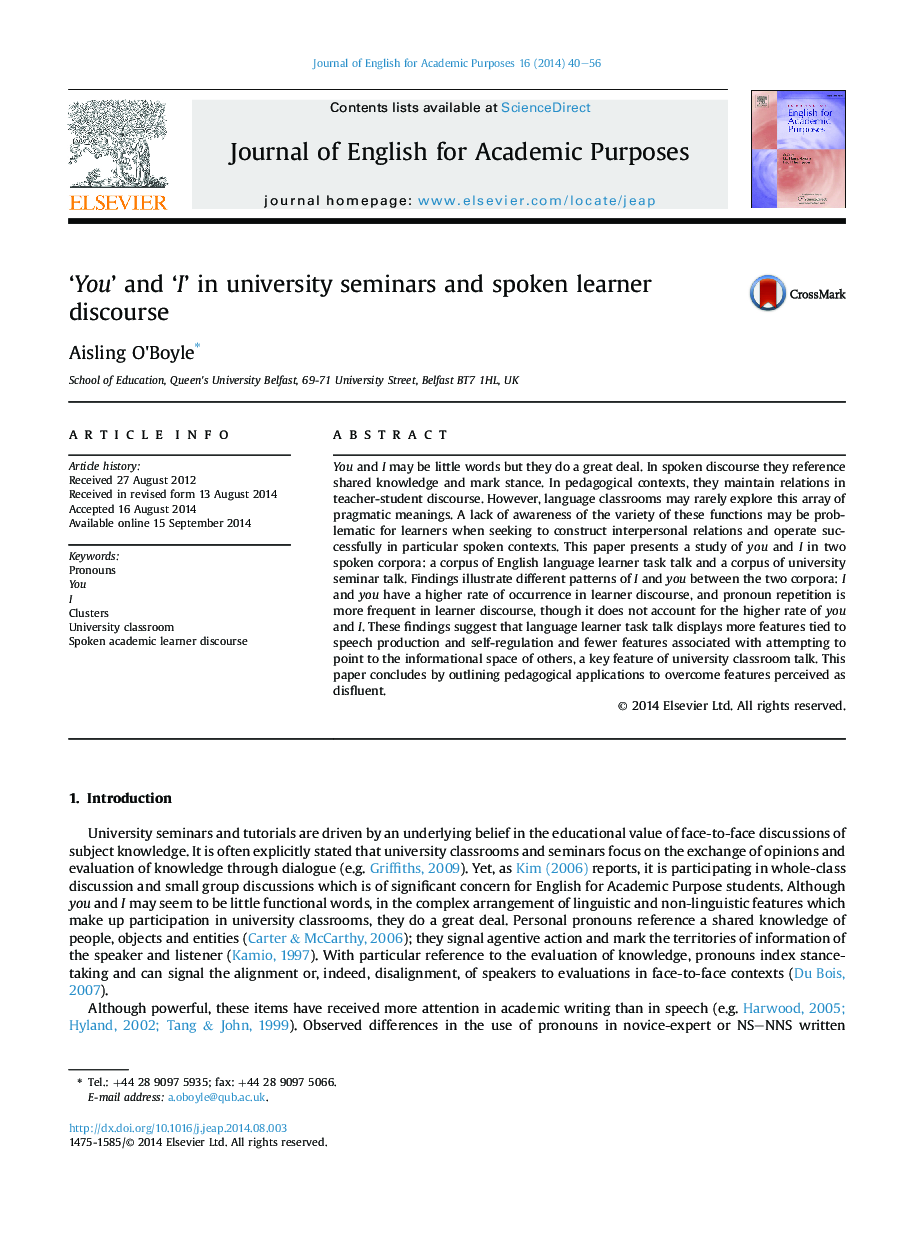| کد مقاله | کد نشریه | سال انتشار | مقاله انگلیسی | نسخه تمام متن |
|---|---|---|---|---|
| 360223 | 620443 | 2014 | 17 صفحه PDF | دانلود رایگان |
• The use of pronouns in university seminars and ELT classrooms is compared.
• Results show differences in the frequencies and functions of you and I.
• Learners overuse I and pronoun repetition is more frequent in learner discourse.
• Learners use I and you for self-regulation.
• Learners use fewer pronoun-related features to relate to the utterances of others.
You and I may be little words but they do a great deal. In spoken discourse they reference shared knowledge and mark stance. In pedagogical contexts, they maintain relations in teacher-student discourse. However, language classrooms may rarely explore this array of pragmatic meanings. A lack of awareness of the variety of these functions may be problematic for learners when seeking to construct interpersonal relations and operate successfully in particular spoken contexts. This paper presents a study of you and I in two spoken corpora: a corpus of English language learner task talk and a corpus of university seminar talk. Findings illustrate different patterns of I and you between the two corpora: I and you have a higher rate of occurrence in learner discourse, and pronoun repetition is more frequent in learner discourse, though it does not account for the higher rate of you and I. These findings suggest that language learner task talk displays more features tied to speech production and self-regulation and fewer features associated with attempting to point to the informational space of others, a key feature of university classroom talk. This paper concludes by outlining pedagogical applications to overcome features perceived as disfluent.
Journal: Journal of English for Academic Purposes - Volume 16, December 2014, Pages 40–56
